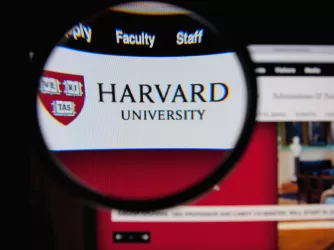Table of Contents
‘California Aggie’ Covers Speech Codes at University of California-Davis
The California Aggie, the student paper at the University of California-Davis, has an excellent article on FIRE's recently released Spotlight on Speech Codes 2010 as well as the speech codes at its own university. The article notes FIRE's major finding in the 2010 report: that restrictive speech codes declined at public universities but increased at private universities. Will had the opportunity to comment for the article:
The decline in speech codes within public universities is due to increased consciousness on part of school administrators to protect student rights, said Will Creeley, FIRE's director of legal and public advocacy.
"It's difficult to pinpoint a reason for the slight, but still disappointing increase in speech restrictions on private campuses," Creeley said. "FIRE will continue to fight speech codes at private colleges that guarantee their students the right to engage in unfettered expression — which, unsurprisingly, is the vast majority of private institutions."
The article also explains FIRE's methodology, namely, how we choose the schools (U.S. News & World Report's list of "America's Best Colleges" plus over 200 public universities) and our rating system (red, yellow, and green lights).
The article then turns to UC Davis's own policies:
UC Davis has been denoted as a red light university.
Among the UC Davis policies that have led to its red-light rating are rules concerning sexual harassment and its guide to residence hall life policies, including computer use and respect. Creeley pointed to the computer use guideline against offensive material as violating the first amendment protection for offensive speech and is subjective in its nature.
However, Donald Dudley, associate director of Student Judicial Affairs, objected to FIRE's characterization of UC Davis' policies as unconstitutional. He went on record to say that the Electronic Communications Policy and Acceptable Use Policy is merely "a guide for the residence halls" and not enforced campus-wide. He adds that the policy will be reviewed and revised to accord with the campus-wide policy, which does not have the offending language: "Campus policies related to speech are to be interpreted and applied consistently with the freedom of expression under the First Amendment. The university routinely reviews its policies and amends them to reflect current legal standards."
We look forward to seeing the revised policy—one fewer reason to give UC Davis a red light. UC Davis' other red-light policy is its "Community Standards of Living - Respect" policy which, among other problems, argues incorrectly and unlawfully that "No one has the right to denigrate another human being on the basis of race, sex, sexual orientation, national origin, physical capability, or any other difference."
Moreover, as Will says at the end of the article, a promise not to enforce policies that unduly restrict speech--even the practice of non-enforcement—is not enough to save the policies.
Yet Creeley believes while universities may be improving in their speech policies, the presence of such restrictions, even if unenforced, tells students that their rights are not as extensive as the constitution permits.
"Teaching students that censorship is an appropriate, justified and even romantic response to unwanted or unpopular speech — even that speech with which we most vehemently disagree — misinforms students about what it means to be a citizen and the lasting value of the principles enshrined in the First Amendment," Creeley said. "Everyone has an equal right to speak their mind."
The article notes recent problems with universities unconstitutionally charging extra security fees for controversial speakers (read Peter's summary of the problem here). UC Davis received criticism from FIRE in 2007 for cancelling a speech by former Harvard president Lawrence H. Summers after faculty members submitted a petition to the UC Board of Regents to rescind the invitation. Again, not everyone agreed with FIRE's take:
Don Abbott, professor of English said FIRE's claims that UC Davis actively campaigned against Summers and that UC Davis is highly restrictive are exaggerated but said universities should be open to controversial speakers.
"I do believe that universities should do all they can to encourage appearances by controversial speakers," Abbott said. "Certainly the First Amendment should protect the right of individuals to present silly ideas."
We certainly agree with that last part. Now, UC Davis just needs to make its policies—and its actions—match its rhetoric.
Recent Articles
FIRE’s award-winning Newsdesk covers the free speech news you need to stay informed.

‘I hate freedom of opinion’ meme leads to sentencing in German court

Revoking Harvard’s tax-exempt status will threaten all nonprofits

Grandpa’s advice for the new wave of American censors
